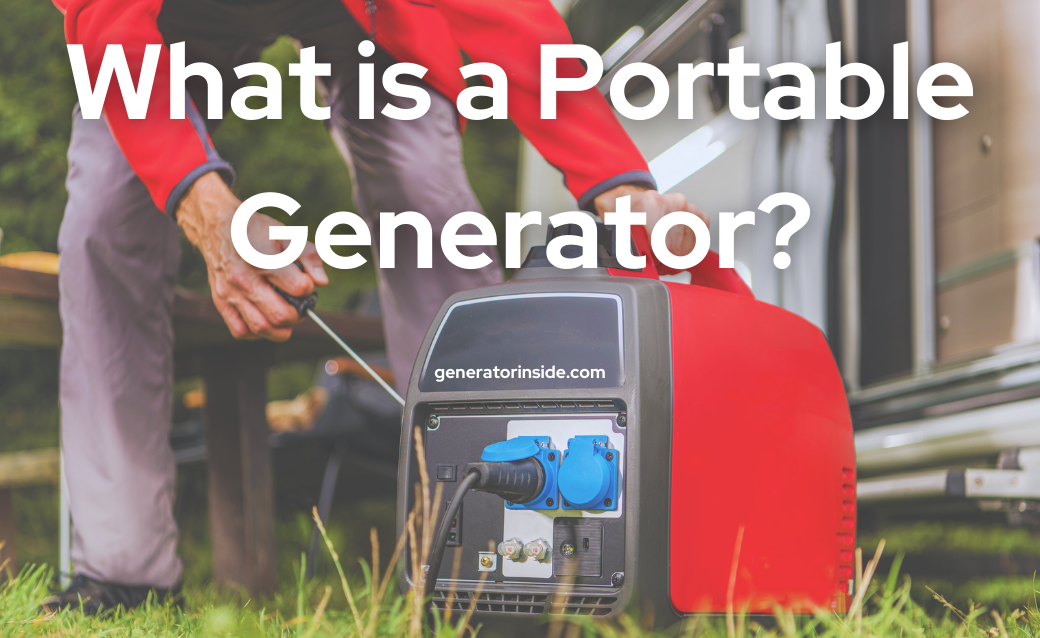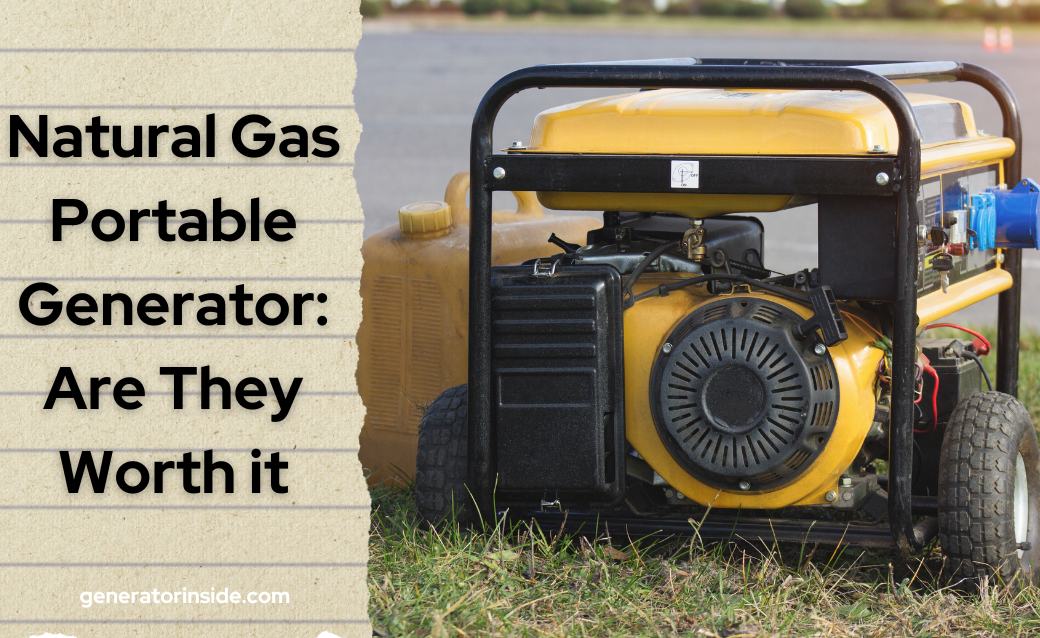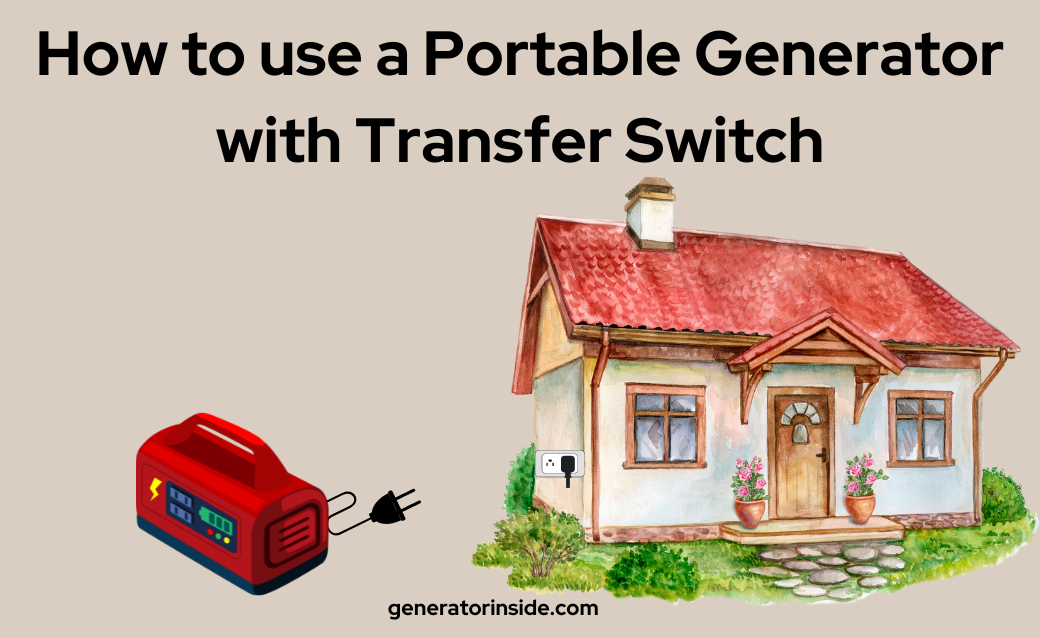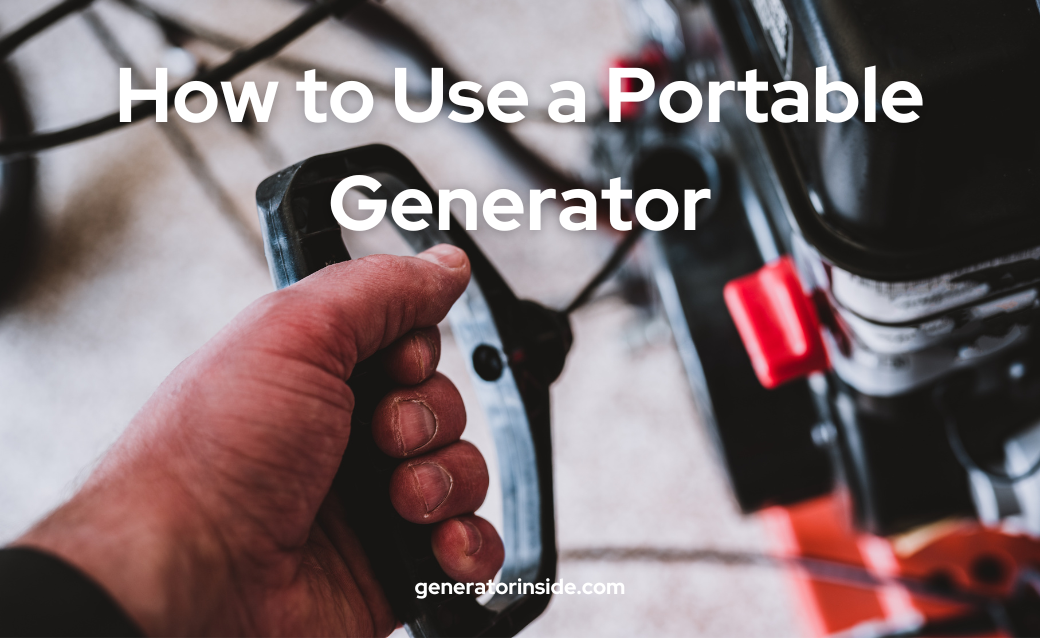
Portable generators have become an essential equipment for households and businesses alike. They provide a reliable source of backup power in times of electrical outages ensuring that essential appliances and equipment continue to function. These generators offer a convenient and efficient solution for outdoor events, construction sites, and remote locations where power may not be readily available.
Their portability and ease of use make them an invaluable tool during multiple situations. But how long does a portable generator last? That’s a question that all portable generator owners deserve to know so that they are prepared for power outages and can make informed decisions about generator maintenance and replacement.
Types of Portable Generators
Gasoline-powered portable generators
Gasoline-powered portable generators are the most common type found in the market. They are popular due to their affordability, availability of fuel, and relatively lightweight design. These generators are ideal for occasional use, such as during power outages or for powering small appliances and tools at outdoor events or construction sites. However, gasoline generators tend to have a shorter lifespan compared to other types of portable generators, and gasoline itself has a limited shelf life which can cause issues if not properly stored or us.
Diesel-powered portable generators
Diesel-powered portable generators offer more fuel efficiency and a longer lifespan than their gasoline counterparts. Diesel engines are known for their durability, making them a suitable choice for more demanding applications or frequent use. While diesel fuel is readily available, these generators tend to be heavier and more expensive than gasoline-powered models. Additionally, diesel generators require more maintenance to keep them running efficiently, but their overall longevity makes them a worthwhile investment for certain users.
Propane-powered portable generators
Propane-powered portable generators are a versatile and eco-friendly option. They emit fewer harmful emissions compared to gasoline and diesel generators, making them a more environmentally friendly choice. Propane is also known for its long shelf life, which ensures a reliable fuel source even if the generator is only used occasionally. Propane generators tend to be quieter than their gasoline and diesel counterparts, but they may have a slightly lower power output. While propane is widely available, it is typically more expensive than gasoline, and the generators themselves can also be more costly. However, their benefits make them an attractive choice for many users who prioritize clean energy and reduced noise levels.
Factors that Affect The Lifespan of a Portable Generator
- Generator quality and brand: The quality and brand of a portable generator play a significant role in determining its lifespan. Reputable brands invest in research, development, and quality control to ensure their generators are built to last. High-quality materials, engineering, and components contribute to a more reliable and longer-lasting generator. It is always recommended to research and invest in a reputable brand to maximize your generator’s lifespan.
- Type of fuel used: The type of fuel used in a portable generator can also impact its lifespan. Diesel and propane generators tend to have a longer lifespan compared to gasoline generators. This is because diesel and propane fuels burn more cleanly and efficiently, resulting in less wear and tear on the engine components. Additionally, gasoline has a shorter shelf life, which can lead to fuel-related issues if not properly stored or used.
- Frequency of use: The frequency of use directly affects the lifespan of a portable generator. Frequent use can cause more wear and tear on the generator, potentially shortening its lifespan. However, occasional use also has its challenges, as components can become worn or damaged if not exercised regularly. Striking a balance between regular use and proper maintenance is essential for maximizing the lifespan of your generator.
- Environmental conditions: Environmental conditions can greatly influence the lifespan of a portable generator. Exposure to extreme temperatures, humidity, dust, and other elements can cause increased wear on the generator’s components, reducing its overall lifespan. It is important to protect your generator from harsh conditions and store it in a clean, dry, and well-ventilated area when not in use.
- Proper maintenance: Proper maintenance is crucial for extending the life of a portable generator. Regular inspections, timely oil and filter changes, and cleaning or replacing spark plugs and air filters are all essential maintenance tasks that can help prolong the life of your generator. By following the manufacturer’s recommended maintenance schedule and addressing any issues promptly, you can significantly increase the lifespan of your portable generator and ensure reliable performance when you need it most.
How Long does a Portable Generator Last?
Gasoline-powered portable generators are the most common type and generally have a lifespan of 1,000 to 2,000 hours. While they are affordable and widely available, their shorter lifespan is due to factors such as the properties of gasoline fuel and the wear and tear on the engine components. Proper maintenance, storage, and care can help extend the life of a gasoline-powered generator, but it is essential to keep in mind that their lifespan is typically shorter compared to other fuel types. Based on usage of 100 hours per year, a gasoline-powered generator can last anywhere between 10-15 years.
Diesel-powered portable generators are known for their durability and have a longer lifespan compared to gasoline-powered generators, usually ranging from 2,000 to 5,000 hours. The increased longevity can be attributed to the efficiency and cleaner combustion of diesel fuel, as well as the robust nature of diesel engines. With proper maintenance and care, a diesel-powered generator used for 100 hours per year can last between 20-30 years.
Propane-powered portable generators offer an eco-friendly option and have a lifespan of 1,500 to 3,000 hours. Although they have a slightly shorter lifespan compared to diesel generators, they still offer a longer life than gasoline-powered generators. Propane burns cleaner and has a longer shelf life, contributing to the increased longevity of these generators. When used for 100 hours per year and with proper maintenance, a propane-powered generator can last between 20-30 years.
Maintenance Tips for Prolonging Portable Generator Lifespan
- Regular inspections
Conducting regular inspections of your portable generator at least once a month is important for identifying any issues before they become severe problems. Check for signs of wear, leaks, or damage on the generator’s exterior and components. Monitoring the performance of your generator during use can also help detect potential issues early on.
- Timely oil and filter changes
Changing the oil and filters according to the manufacturer’s recommended schedule is essential for maintaining your portable generator’s engine. Fresh oil change after the first 20-30 hours of operation and after that every 50-100 hours of use should be done. Clean filters after every 50-100 hours help to reduce friction, minimize wear, and maintain optimal engine performance, ultimately prolonging the generator’s lifespan. If your portable generator is not used frequently, consider changing the air filter at least once per season or as recommended by the manufacturer. Some generators may also have fuel filters that should be replaced according to the manufacturer’s guidelines, which can typically range from 100 to 300 hours of operation or annually.
- Proper storage when not in use
Storing your portable generator properly when not in use is vital for protecting it from damage caused by moisture, dust, and extreme temperatures. Store the generator in a clean, dry, and well-ventilated area to prevent corrosion, protect engine components, and ensure it remains in good working condition.
- Cleaning and replacement of spark plugs and air filters
Regularly cleaning and replacing spark plugs and air filters is a simple yet effective way to maintain your portable generator’s performance. Dirty spark plugs can cause misfires and reduced efficiency, while clogged air filters can restrict airflow, leading to increased fuel consumption and a decrease in power output. Keeping these components clean and functional helps extend the life of your generator.
- Avoid overloading the generator
Overloading a portable generator can cause damage to the engine and electrical components, ultimately shortening its lifespan. Always ensure that the total wattage of the appliances and equipment connected to your generator does not exceed its rated capacity. Be mindful of both the running wattage and starting wattage requirements, as some devices may draw more power when starting up.
Signs Your Generator May Need Replacement
Frequent breakdowns: One sign that your portable generator may need replacement is if it experiences frequent breakdowns or requires constant repairs. As a generator ages, its components can become more susceptible to wear and tear, leading to an increased likelihood of malfunctions. If you find that your generator is breaking down more often than usual, it may be more cost-effective to invest in a new one rather than continually paying for repairs. A study has shown that even well-maintained generators have a 20% chance of failure within a two-week period. It is important to note, however, that this research specifically targets emergency diesel generators, which are typically used as stand-alone units (<2000 kW) for individual buildings. These generators are commonly found in hospitals, emergency services, military bases, ports, airports, and various industries.
Reduced efficiency:
Another indicator that your generator may need replacement is reduced efficiency. If you notice that your generator is taking longer to power up devices or struggling to maintain the same power output it once did, it could be a sign that the generator’s components are wearing out. For example, if your generator used to power your appliances with ease but now struggles to handle the same load, this may be a sign that it is time for a replacement.
Difficulty starting or maintaining power output:
A generator that is difficult to start or has trouble maintaining its power output could also indicate that it’s time for a replacement. This could be due to worn-out components or internal damage that is affecting the generator’s performance. In some cases, this issue can be resolved with maintenance or repairs, but if the problem persists despite these efforts, it might be time to consider purchasing a new generator.
Excessive fuel consumption:
If your generator is consuming significantly more fuel than it used to or more than what is typical for its make and model, this could be a sign that it’s time for a replacement. A compact portable generator may use approximately 0.5 gallons of fuel per hour when operating at 25% load. In comparison, a 20-kilowatt generator can consume around 3.6 gallons of diesel fuel per hour when running at maximum capacity. Meanwhile, a larger 100-kilowatt generator can burn through about 18 gallons of diesel fuel per hour when operating at full load. For example, if a generator has a maximum fuel consumption rate of 4 gallons per hour at 100% load, it should consume around 2 gallons per hour at 50% load. If your fuel is consuming anything more than that, then you should be alarmed
Excessive fuel consumption can indicate inefficiencies within the generator’s engine or other components, which can lead to increased operating costs and a greater environmental impact. In such cases, investing in a new, more fuel-efficient generator could ultimately save you money and reduce your carbon footprint.
If you notice any of these signs, it is important to evaluate whether it is more cost-effective and practical to repair your existing generator or invest in a new one. Keep in mind that newer models often offer improved efficiency, reliability, and technological advancements, which can provide additional benefits beyond simply addressing the issues you may be experiencing with your current generator.
how long does a portable generator last Conclusion
Now that you know how long your portable generator lasts, you can ensure it provides reliable and efficient performance whenever you need it. By understanding the expected lifespan of your generator, you can make better decisions about maintenance, repairs, and when it’s time for a replacement. Being aware helps you plan and prepare for your power needs.
Take the time to properly maintain and care for your portable generator as it not only helps it last longer but also ensures it performs at its best. Regular inspections, timely oil and filter changes, and keeping components clean can significantly impact how long your generator serves you. In the long run, your efforts will save you time, money, and provide peace of mind.
Stay wary of the signs that your portable generator may need replacement. It is essential for maintaining a dependable power source when you need it most. If you notice frequent breakdowns, reduced efficiency, difficulty starting, or excessive fuel consumption, it might be time to consider a new generator. By staying proactive and keeping an eye on your generator’s performance, you can make timely decisions about replacing it, ensuring you’re always prepared with a reliable source of backup power.
Also Read:
Difference between Inverter and Generator
How Much Gas Does A Generator Use
How long Can you Run a Portable Generator Continuously 2023?













